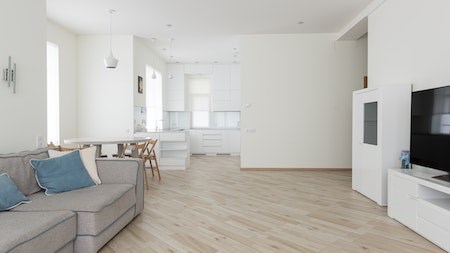What do you do if you love your home’s location and the area, but the home no longer fits your growing family’s needs? Do you stay and renovate your existing home or find a home that meets your developing criteria?
“At some stage, many homeowners, particularly those still living in their starter homes, will be faced with the decision of either moving or renovating their existing home to accommodate their needs,” says Adrian Goslett, Regional Director and CEO of RE/MAX of Southern Africa. “The decision will largely be determined by various key factors such as whether the existing home has the necessary space for additional rooms needed to accommodate the family’s changing situation. There is also the question of affordability and which choice makes the most sense based on the homeowner’s financial situation.” There is no right or wrong answer to the question as the determining factors will differ them from person to the next based on their individual needs and circumstances. The choice needs to fit in with your lifestyle, criteria and financial standing. “With property viewed as a long-term investment, many buyers purchase a home they know they will be able to add onto when the need arises and their budget allows. However, there are also buyers who purchase a home that is right for them at the time but know that as soon as their situation changes they will have to relocate,” says Goslett.
Both options have their pros and cons, but there are steps that homeowners can follow to assist them in making the decision a slightly easier one.
According to Goslett, the first step is to determine the value of the property, as well as the estimated cost of the required renovation project. “It is vital to factor in all costs involved in the project such as the materials and the labour costs of the contractor. Where the renovation impacts the structure of the home, you will be required to get a building inspector to sign off on the plans before any work on the project begins,” says Goslett.
He notes that it is advisable to add an additional 10% to the renovation costs to cover any unexpected issues that may occur during the project’s construction. Once an estimated figure has been established, you will be able to compare the cost of the renovation versus properties you would be able to purchase by adding that amount to your existing bond amount. “Depending on how long you have lived in the home, as well as the conditions surrounding the market, there is a good chance you would have built up equity which could be used towards the purchase of a larger property,” says Goslett. “While determined by your needs and budget, it may be possible to find a home that meets your criteria and has some additional features such as an extra room, a double garage or proximity to good schools. Of course, there is the alternative of not finding anything within the price range, which means it would be more feasible to undertake the renovation project. One way or the other, comparing apples with apples will help make the decision easier.”
When deciding whether to renovate, there is always the risk of over-capitalising. Even if the home offers more, it could become overpriced for the area in which it is located and might be difficult to sell in the future. “Before renovating or adding to the home it is best to find out the average property price in the neighbourhood. If the renovation costs exceed the average house price, it may be quite a few years before you would be able to sell the property and recoup the money spent on the project. However, the decision to renovate or change a home is not always about increasing the home’s value or for the purposes of resale.
Very often the renovation is to improve the living conditions or lifestyle of the home’s occupants. Often it is emotion that drives the decision, not cost,” says Goslett.
He adds that there are also homeowners who don’t want to leave where they are located, so stay put and renovate, not for appreciation value but because they love where they live. “There are countless reasons that people choose to stay in a certain area, such as the fact that they grew up there and it holds sentimental value, it’s close to where they work or their children are settled and happy in the local school. Some people also like the fact that they have creative freedom when renovating, allowing them to select the materials and fixtures they want in their home,” says Goslett. “While renovation can be stressful and disruptive to everyday life, moving to a completely new home is not without its own challenges and costs.”
In conclusion, Goslett says that either option have both positive and negative elements, however, each also provides an opportunity to move one step closer to owning your ideal home.
Some guidelines to consider for those looking to answer the renovate-or-move question:
When renovation is the better option:
You love the location of your home and the neighbourhood
You can tolerate living in a construction site or moving out of the house for a while
You want to have complete creative control
You have a reliable building contractor When moving is the better option:
You want to change your location for example, in search of better schools or a shorter travelling distance to the office • The disruption of a renovation is too much to handle • Renovations may cause the property to be overpriced for your area




